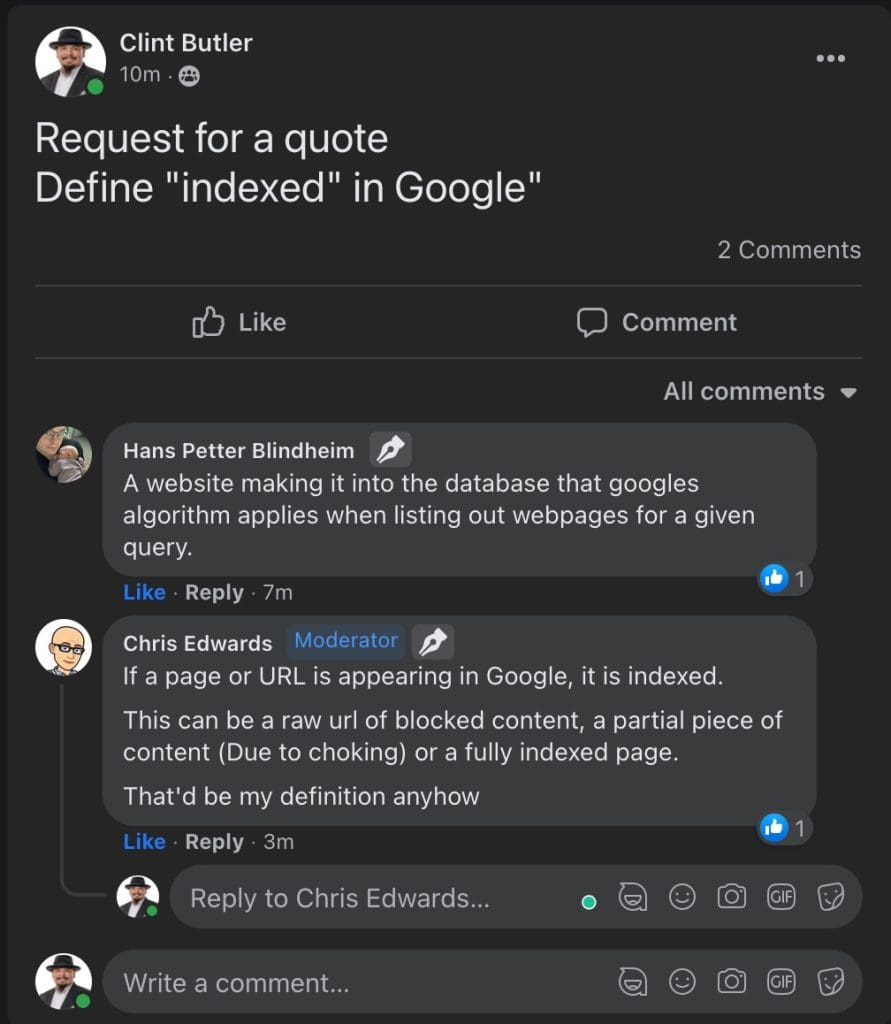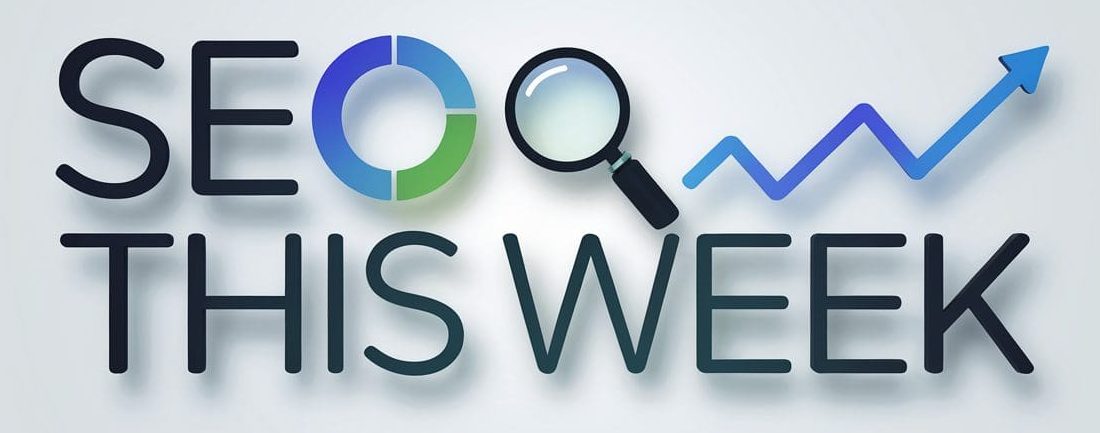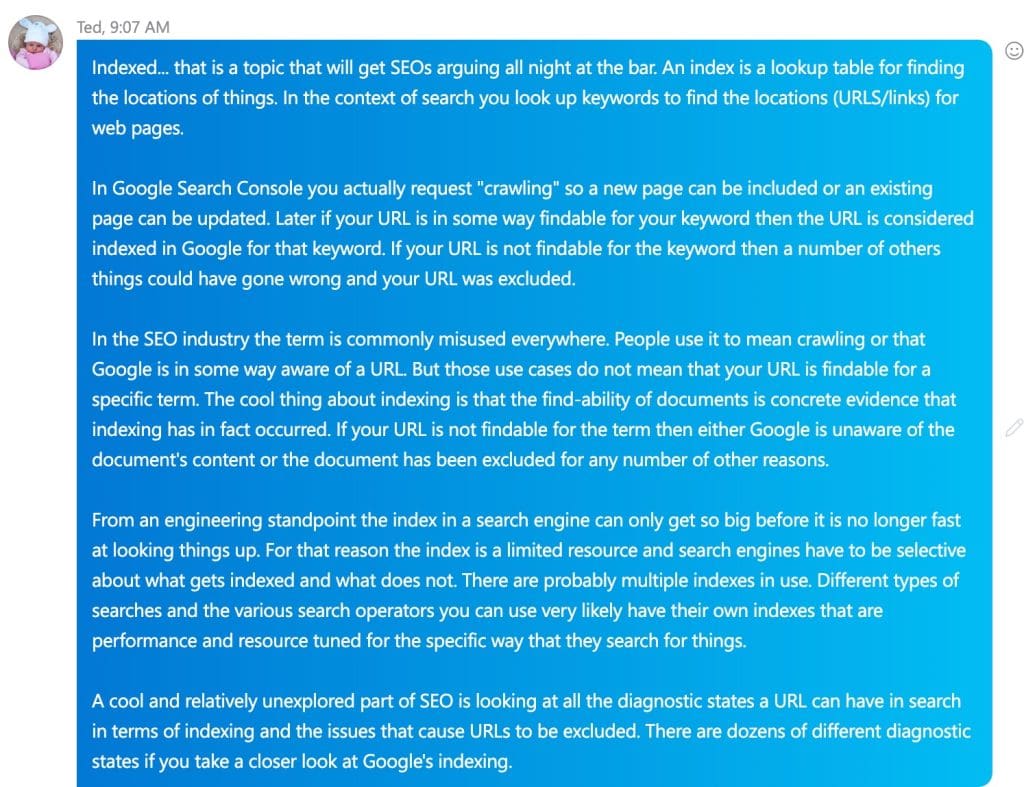(SEO This Week) – Frustrations mount with Google indexing as the company’s systems have been slow to add new pages to the search results. With some users claiming their pages haven’t been indexed in weeks, sometimes months, people are beginning to ask questions about pages they are putting (or someone else put) on web pages to their websites.
Specifically, do links count if they are not on pages that are not indexed?
First, we have to define indexed, and even there is some confusion in the SEO circles.
There is one argument that for a page to be considered indexed, it has to be ranking for a keyword. i.e. if a page is ranking for “apple pies on the beach”, it’s indexed for that term. However, if it’s not ranking for “apple pies on the boardwalk” then it’s not indexed for that term.
There is another argument that a page is considered indexed if you can search for the page URL or even exact match of the title and it shows up in the results, that page is considered indexed. This is the most widely held understanding of “indexed”.

This is where the question of “do links have to be indexed to count?” comes in.
Practitioners typically work hard, and spend significant money, on links and getting those links indexed so that Google will see the links and give credit to the target site.
But is it really necessary?
Quick question which I don’t recall seeing the answer to: If a URL isn’t indexed, but that page is linking to your site, and that URL is spam, meaning a “toxic link” (let’s say spinned content), would that link harm your site’s ranking or not?
— 𓂀 Ori Zilbershtein (@OriZilbershtein) January 10, 2022
Considering so many SEOs taking initiatives to put actively domains & URLs in their disavow file, might be important to consider if this has any impact.
— 𓂀 Ori Zilbershtein (@OriZilbershtein) January 10, 2022
Google’s John Mueller replied:
If they’re not indexed, I wouldn’t assume the links do anything.
— 🐄 John 🐄 (@JohnMu) January 10, 2022
Something in his reply stood out, his use of the word “assume”. So either he doesn’t know the definitive answer or just can’t reply, something the OP didn’t pick up on.
Fwiw I was talking about the dreaded link-juice-cascade; links can still be useful to get users to visit :-). Of course also links that are on indexed pages can be ignored, and there’s no API for testing if a page is indexed, so SEO tools can’t do that without breaking our TOS.
— 🐄 John 🐄 (@JohnMu) January 10, 2022
John went on to follow up with some conditions to his response including the statement that “links that are indexed could be ignored” and that tools that scrape Google to identify indexed URLs are a violation of the Google Terms of Service agreement.
Also, note that the OP is using Google’s “assume” statement to devalue backlink monitoring tools like Ahrefs, SEMRush, Link Research Tools, CognitiveSEO, Moz, and Majestic to name a few. Something that happens quite a lot in the search engine optimization community.
But that is not the end of the story.
Is this new or does this relate to external links?
— Christian Radny (@ChrisRadny) January 11, 2022
I can see internal links from my noindexed pages to pages which are indexed in GSC.
And you told me in a hangout, that noindexed pages can transfer signals when a canonical is shown in the inspector tool.
It seems that John opened a can of worms with his answer as other posters questioned other conditions where noindexed pages are indeed passing some type of signal. Conditions that John himself detailed in Webmaster Central hangouts and on Twitter in the past.
SEO Intelligence Agency did conduct a series of tests on the topic a couple of years back. All of their test results were conducted with deindex PBN’s pointing to target pages. The links were created after the PBN’s were deindexed and then submitted to indexers to get the pages recrawled.
While the pages were never reindexed, the target pages did get an increase in rankings after the links were crawled, a behavior that happened for all of the tests.

Because of the age of these tests, they certainly have to be retested again, however, I’ve been using deindexed PBN’s for adult markets ever since these tests were published with great results. So it’s something to consider when you are getting links from legitimate sources that are indexing slowly because Google has dropped the ball on servicing publishers and users with new content.


